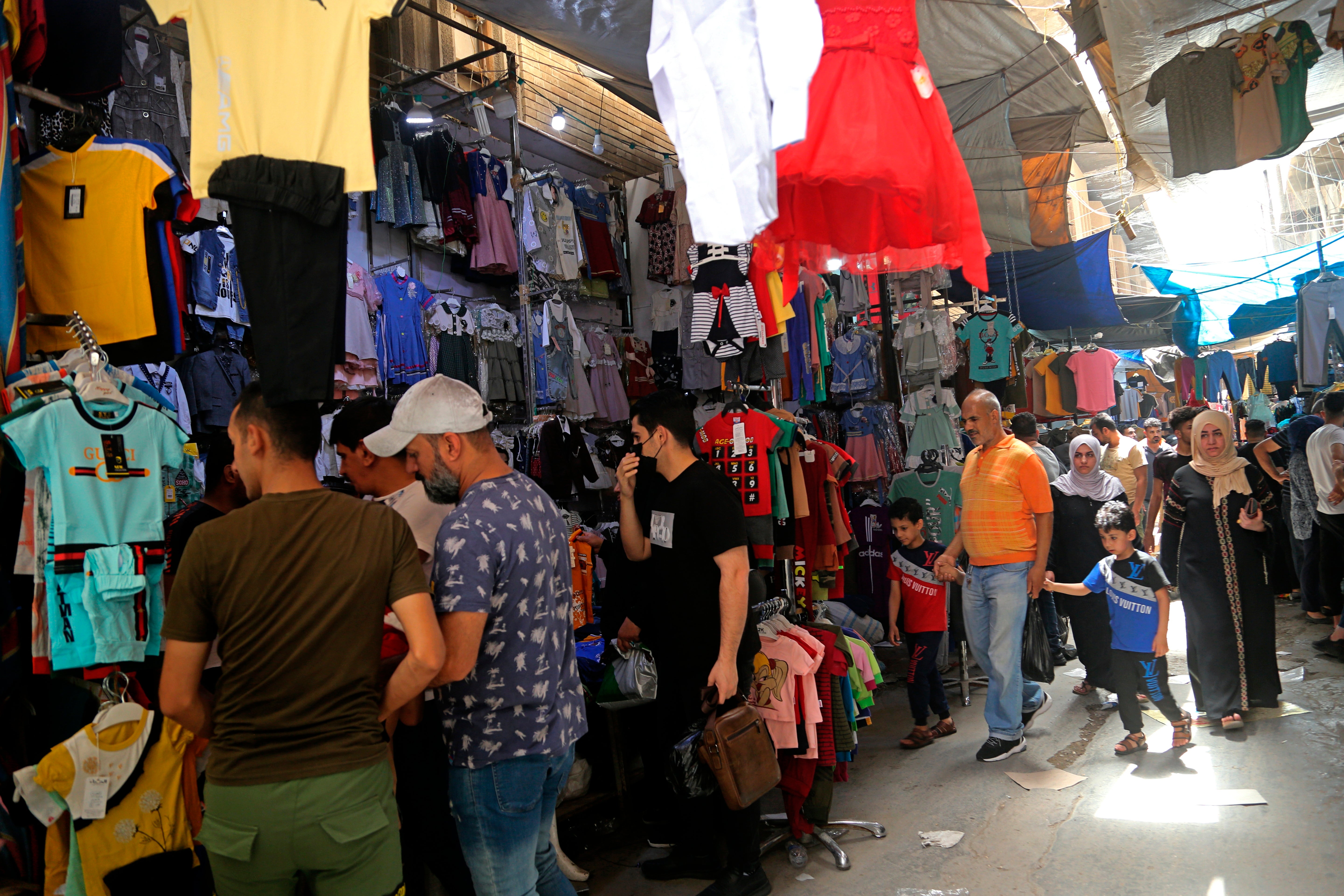UN envoy: Iraqis must ensure integrity of October elections
A top U.N. envoy is urging Iraqis to uphold the integrity of “all-important national elections” in October

Your support helps us to tell the story
From reproductive rights to climate change to Big Tech, The Independent is on the ground when the story is developing. Whether it's investigating the financials of Elon Musk's pro-Trump PAC or producing our latest documentary, 'The A Word', which shines a light on the American women fighting for reproductive rights, we know how important it is to parse out the facts from the messaging.
At such a critical moment in US history, we need reporters on the ground. Your donation allows us to keep sending journalists to speak to both sides of the story.
The Independent is trusted by Americans across the entire political spectrum. And unlike many other quality news outlets, we choose not to lock Americans out of our reporting and analysis with paywalls. We believe quality journalism should be available to everyone, paid for by those who can afford it.
Your support makes all the difference.A top U.N. envoy urged Iraqis on Tuesday to uphold the integrity of “all-important national elections” next October, saying the world will be watching to see that voting is free and transparent without political pressure or interference.
Jeanine Hennis-Plasschaert, the U.N. special representative for Iraq, told the Security Council that the Iraqi people demanded these elections during demonstrations in which some paid with their lives and “now is not the time to let them down.”
“For elections to be trusted, disinformation must be combatted with facts, and intimidation must be replaced with accountability,” she said. “The failure to hold credible elections would cause significant, lasting, widespread anger and disillusionment, which in turn could further destabilize the country at a time where strength and unity are desperately needed.”
Anti-government demonstrators took to the streets by the tens of thousands last year to demand political change and an end to rampant corruption and poor services. More than 500 people were killed in the protests as security forces used live rounds and tear gas to disperse crowds.
Last July, Prime Minister Mustafa al-Kadhimi announced that early elections would be held to meet their demands. But Iraq’s Cabinet voted in January to postpone the balloting for four months, until October, after the electoral commission sought the delay for technical reasons.
Hennis-Plasschaert lamented that many members of the protest movement “continue to be persecuted with rampant impunity,” citing “the tragic example” of the assassination of prominent activist Ihab Jawad Al-Wazni by unidentified gunmen just two days ago in Karbala
She called the Oct. 10 elections “a milestone in the young history of Iraq’s democracy,” saying “a trusted electoral process, with free and wide-ranging participation, can help steer the country towards the safe and prosperous future Iraqis deserve.”
But Hennis-Plasschaert said that “at this critical juncture, transparency and the rule of law must prevail” and every voter, candidate, journalist and activist must play their part.
“Boycotting elections, and thus staying outside the electoral process, is risky business and comes potentially at high costs,” she warned.
The U.N. Is already providing technical support to the Iraqi High Electoral Commission, she said, and it remains committed “to assist Iraq in delivering these elections.”
The Iraqi government has requested additional support for the elections, and U.S. Ambassador Linda Thomas-Greenfield said al-Kadhimi's administration has worked “to fulfill its promise of credible early elections, and to maximize turnout at a critical moment in Iraq’s history.”
“This is a top priority for us -- both the United States and the United Nations -- and we all want to ensure the maximum possible support for Iraqi elections,” she said.
Thomas-Greenfield said the United States aims “to dramatically bolster” provisions in the mandate of the U.N. political mission in Iraq known as UNAMI, which Hennis-Plasschaert heads, “to elevate the U.N.’s role in the Iraqi elections.”
The Biden administration wants to authorize “a U.N. team sizable enough to deter fraud, increase turnout, and rebuild trust in Iraq’s democracy,” the ambassador said. “That includes calling for a robust and visible U.N. team to monitor Iraq’s election day.”
Thomas-Greenfield gave no numbers but said “UNAMI’s increased technical electoral assistance team will be larger, more advanced, and better equipped than prior election teams -- and it will be the largest U.N. technical electoral assistance mission in the world.”
The robust team is needed, she said, because “violence by armed actors against citizens, security forces, and journalists threaten to undermine the election.”
The United States is very concerned at reports that militias are harassing activists, protesters, and people who criticize armed groups operating outside state control, the ambassador said.
Thomas-Greenfield also condemned al-Wazni’s assassination in Karbala, calling it “part of a disturbing and unacceptable trend of violence attempting to silence independent voices in Iraq.” Some perpetrators “are Iran-aligned militias” while other armed groups include remnants of the Islamic State extremist group, she said.
“The United States will continue to stand with those seeking a peaceful and prosperous future for Iraq,” Thomas-Greenfield said.